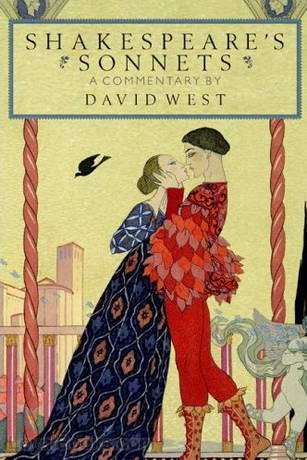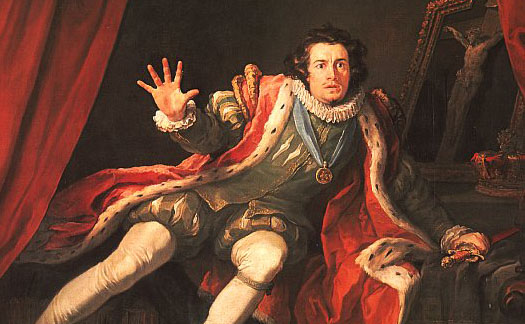While episode 4, “The Deer Hunters,” focuses predominately
on Rory’s need to pass a Shakespeare exam, it is also memorable for introducing
the character of Max Medina, one of Lorelai’s predominant love interests. I am
not a huge fan of Max fan, but I am not sure if this is because I am so in love
with the character of Luke that I automatically dislike anyone else Lorelai
dates. It could also be because Max is an English teacher and I automatically
critique his teaching methods and his credibility in every classroom scene. I
can say that Mr. Medina’s class
is nothing like a typical high school English class. I find myself muttering things like “His lesson had no closure!” and “He didn’t give students a rubric for that assignment!” Sometimes I don’t know what is wrong with me that I critique fictional teachers. But that is not the point of this blog post! While Mr. Medina is giving his Back to School Night presentation, he rattles off a list of authors that are the perfect amount of obscure and impressive (what a show off). So in order to read a bit of each author, I had to whip out my Norton Anthology of English Literature I still have from my years of an English major in college and my trusty fun colored pens.
| He is no Luke. No sirree. |
Christopher Marlowe
 |
| Look at that hair! |
Christopher
Marlowe was one of Shakespeare’s contemporaries and one of Shakespeare’s
influences. He is a fascinating man and could have risen to even greater
heights if he had not been murdered when he was 29. So much potential lost! The
motivation behind his murder remains a mystery, but it is clear that Marlowe
was a man who was involved in a lot of drama. He spent time working as a spy
(Yes! A spy!) for the Protestant regime. His job was to help stop the English
Catholics from overpowering them. In my head, though, spying and religion don’t
mesh very well, but there is your history lesson of the day!
Marlowe’s
is remembered for the play Dr. Faustus. The
Faust story was not new, but Marlowe
was the first to put it in the form of an Elizabethan drama. Making a deal with
a devil is not a new literary trope; it is constantly being reinvented. I read
this play during my sophomore year of college in one of the three Literature in
History courses I took. Marlowe, being one of Shakespeare’s contemporaries, was
an important author to analyze in conjunction with Shakespeare. It was
definitely one of the more memorable texts I read that year. I will probably
eventually reread it; however, right now I want to focus on reading newer texts
on the list.
Ben Jonson
 Another
English playwright who could’ve who could’ve been a spy! When one pictures a
spy, you imagine them as someone serious and who is focused on taking care of
business. Ben Jonson doesn’t fit that mold as most of his writings were
considered comedic or satirical. He is considered to be the most important
playwright after the time of Shakespeare and was the unofficial poet laurite of
England in his time. I had never read Ben Jonson before despite being familiar
with his name. I didn’t have the time to read an entire play so I chose a short
selection from my Norton Anthology
called “The Masque of Blackness.” What is a masque you may ask? No it is not a
mask that covers one’s face. According to my Norton a masque is “essentially an elaborate dance form. It was a
multimedia event combining songs, speech, richly ornamented costumes and masks,
shifting scene panels depicting elaborate architecture and landscapes, and
Another
English playwright who could’ve who could’ve been a spy! When one pictures a
spy, you imagine them as someone serious and who is focused on taking care of
business. Ben Jonson doesn’t fit that mold as most of his writings were
considered comedic or satirical. He is considered to be the most important
playwright after the time of Shakespeare and was the unofficial poet laurite of
England in his time. I had never read Ben Jonson before despite being familiar
with his name. I didn’t have the time to read an entire play so I chose a short
selection from my Norton Anthology
called “The Masque of Blackness.” What is a masque you may ask? No it is not a
mask that covers one’s face. According to my Norton a masque is “essentially an elaborate dance form. It was a
multimedia event combining songs, speech, richly ornamented costumes and masks,
shifting scene panels depicting elaborate architecture and landscapes, and
John Webster
Sir Francis Bacon
.jpg/220px-Francis_Bacon%2C_Viscount_St_Alban_from_NPG_(2).jpg) I just have
to start out saying that I think Kevin is the better Bacon man. Was that too
cheesy? I’m sorry. I can’t resist a cheesy joke. My students are used to it so
you should be too. Francis Bacon is the one outlier of this group of authors.
While Shakespeare, Marlowe, Jonson, and Webster were all playwrights, Bacon’s
primary literary form was the essay. He is actually credited as one that helped
shape the English essay form. Bacon touched on a wide variety of topics in his
essays, but is probably best known for practicing the scientific method. I
teach English so it has been awhile since I have even thought about the
scientific method. I think I recall the word hypothesis? (Just kidding, I know
what this means.)
I just have
to start out saying that I think Kevin is the better Bacon man. Was that too
cheesy? I’m sorry. I can’t resist a cheesy joke. My students are used to it so
you should be too. Francis Bacon is the one outlier of this group of authors.
While Shakespeare, Marlowe, Jonson, and Webster were all playwrights, Bacon’s
primary literary form was the essay. He is actually credited as one that helped
shape the English essay form. Bacon touched on a wide variety of topics in his
essays, but is probably best known for practicing the scientific method. I
teach English so it has been awhile since I have even thought about the
scientific method. I think I recall the word hypothesis? (Just kidding, I know
what this means.)
I read one
of Bacon’s essays called “Of Truth.” Elizabethan authors loved to title their
works “Of Blah-Blah-Blah” or “On Blah-Blah-Blah.” Let’s see some creativity
people! Honestly, I did not get much out of reading this essay. It was
difficult to read and to comprehend and my heart was not in it. I tried, but I
know I am whole-heartedly a novel lover!
| Because Kevin Bacon is sooooo much better! |
Pictures:
Lorelai and Max:
Sir Francis Bacon: https://upload.wikimedia.org/wikipedia/commons/thumb/1/11/Francis_Bacon%2C_Viscount_St_Alban_from_NPG_%282%29.jpg/220px-Francis_Bacon%2C_Viscount_St_Alban_from_NPG_%282%29.jpg
Kevin Bacon: http://wmespeakers.com/sites/default/files/speakers/Kevin%20Bacon%20crop.jpg




